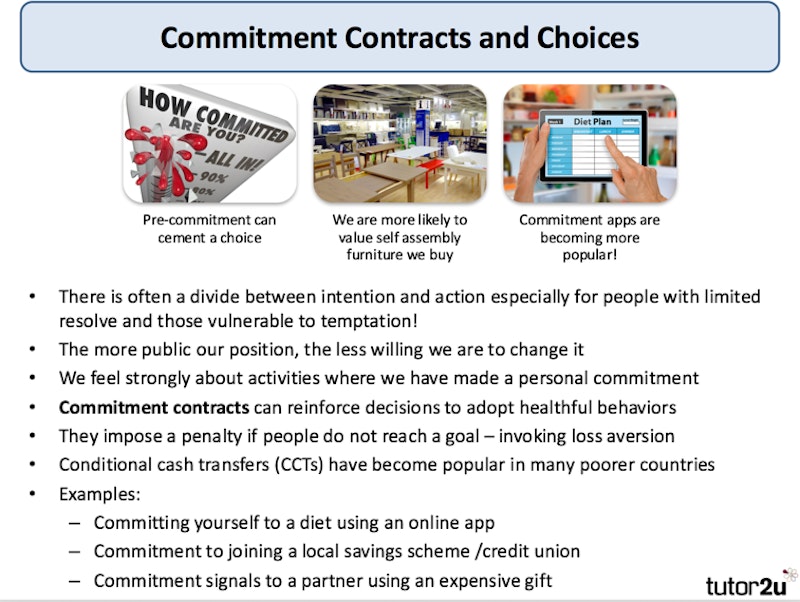Study Notes
Commitment Contracts and Behavioural Choice (Behavioural Economics)
- Level:
- AS, A-Level
- Board:
- AQA, Edexcel, OCR, IB
Last updated 21 Mar 2021
There is often a divide between intention and action especially for people with limited resolve and those vulnerable to temptation! The more public our position, the less willing we are to change it and we feel strongly about activities where we have made a personal commitment. Therefore, commitment contracts can reinforce decisions to adopt healthful behaviours such as getting your children immunised or saving enough.
Commitment contracts impose a penalty if people do not reach a goal – invoking loss aversion.
Loss aversion means that people feel financial losses more acutely than they would feel the financial gains of a similar size
Conditional cash transfers (CCTs) have become popular in many poorer countries - whereby cash welfare payments are made conditional for example on mothers bringing their children to immunisation centres to complete a course of treatment.
Examples:
- Committing yourself to a diet using an online app
- Commitment to joining a local savings scheme /credit union
- Commitment signals to a partner using an expensive gift

You might also like

Behavioural Economics: Smoking Kids
23rd June 2012

Why you shouldn't copy your classmates!
16th May 2015

Perfect Game Theory Starter Activity
13th August 2015

Paul Ormerod: Are the Markets Telling the Truth?
28th January 2016

Germ Theory and Behavioural Nudges for Better Health
6th November 2016

Seven Amazing Optical Illusions
21st February 2017

What Happens When Economics Doesn’t Reflect the Real World?
15th January 2020
1.2.10 Rational Consumer Behaviour (Edexcel A-Level Economics Teaching PowerPoint)
Teaching PowerPoints